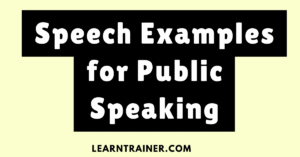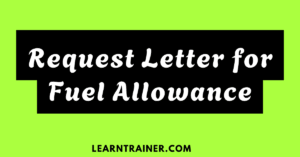Let’s face it: interviews can be nerve-wracking. You’ve made it past the initial application stage, and now you’re sitting across from an interviewer, wondering how best to talk about yourself. One of the trickiest questions in any interview is: “Tell me about yourself.”
You’ve probably rehearsed your response countless times, but still, it feels like a big challenge to balance confidence, humility, and enthusiasm all in one answer.
In this blog post, I’m going to break down what you should focus on when the interviewer asks you to talk about yourself.
I’ll give you actionable insights, detailed examples, and mistakes to avoid so that you can answer this question in a way that feels natural, authentic, and ultimately memorable. Plus, I’ll share personal tips from my own experience to help you craft a response that stands out.
The Purpose behind “Tell Me about Yourself”
Before diving into what to say, let’s first understand why interviewers ask this question in the first place. When you hear, “Tell me about yourself,” it’s not just a request for your life story. This question serves several purposes:
- It sets the tone for the interview: How you answer helps the interviewer gauge your communication style and whether you’re a good fit for the company culture.
- It tests your ability to summarize: You have a limited amount of time, so you need to provide a concise but compelling answer.
- It provides insight into your priorities: Your answer reveals what you value and how you view your own career.
- It opens the door for more conversation: A well-crafted response can lead to follow-up questions about specific projects, experiences, or skills.
How to Structure Your Answer: The “Present-Past-Future” Approach
One of the easiest ways to answer this question is by using the Present-Past-Future structure. It helps you stay organized and ensures you don’t ramble or go off-topic. Here’s how it works:
- Present: Start by discussing what you’re currently doing. This could be your current job, your academic pursuits, or any relevant project. Highlight your role, responsibilities, and any recent accomplishments that show you’re actively contributing.
- Past: Transition to your previous experiences. Talk about your background and what led you to this point. Focus on key roles or projects that helped you build the skills and experience you’re currently using.
- Future: Finish by talking about your goals and how the position you’re interviewing for fits into your broader career plans. Be sure to mention why you’re excited about the opportunity and how you can contribute to the company.
Example of the “Present-Past-Future” Structure:
Present:
“I’m currently working as a web developer at [Company], where I manage the front-end development of several high-traffic websites. I’ve been able to improve the page load times by 30% using modern JavaScript frameworks and optimizing images.”
Past:
“Before that, I worked at [Previous Company] where I focused on creating user interfaces using React.js. I helped streamline the UX design process, which resulted in a 20% increase in user engagement across key products.”
Future:
“Looking forward, I’m excited about opportunities where I can take on more leadership roles and work on larger-scale projects. I believe that this role would allow me to leverage my development skills while collaborating with a talented team to create even more impactful digital experiences.”
This structure is effective because it gives the interviewer a clear timeline of your career while allowing you to highlight your key achievements and future aspirations.
Tailoring Your Answer to the Job Description
Another important aspect of answering the “Tell me about yourself” question is aligning your response with the specific job you’re applying for. I’ve seen many candidates fall into the trap of giving generic answers that don’t directly relate to the role. Here’s how you can tailor your response:
- Highlight relevant skills: Focus on skills and experiences that directly relate to the job description. If you’re applying for a product design role, emphasize your experience with user research, prototyping, and collaboration with cross-functional teams. Don’t just list your skills show how they are relevant to the role you’re interviewing for.
- Mention your interest in the company: This is your chance to demonstrate that you’ve researched the company and understand its mission. A quick mention of why you’re excited to work there can set a positive tone for the interview.
- Discuss your passion for the field: Talk about why you’re passionate about your industry or the specific type of work you do. Your enthusiasm is contagious and helps interviewers see that you’re genuinely invested in your career.
Example Tailored to a Web Developer Role:
Present:
“I’m currently a front-end developer at [Company], where I work closely with product teams to develop responsive, user-friendly websites. I’m especially proud of a recent project where we revamped the entire website for a major client, which led to a 40% increase in user retention.”
Past:
“My background includes several years of experience with JavaScript frameworks, including React.js, as well as a deep understanding of HTML5 and CSS3. I’ve also had the opportunity to work with backend developers to integrate APIs, which has given me a holistic understanding of full-stack development.”
Future:
“I’m eager to transition into a more senior developer role, where I can lead a team and contribute to the long-term vision of product development. I admire [Company’s] innovative approach to web design, and I’m excited about the chance to help shape the future of your digital products.”
Notice how each section directly relates to the job description and shows a clear path from your past experiences to your future goals.
Common Mistakes to Avoid
While the “Tell me about yourself” question may seem simple, many candidates make avoidable mistakes. These mistakes can make you come off as unprepared or disconnected from the role. Let’s go through some of the most common pitfalls:
Mistake 1: Rambling or Giving Too Much Information
It’s easy to get carried away when talking about yourself, but a long-winded answer can lose the interviewer’s attention. Keep your response clear and concise. Ideally, your answer should last no longer than 2 minutes.
Mistake 2: Focusing Too Much on Personal Details
It’s tempting to talk about your personal life, but this isn’t the place for it. Stick to professional experiences and qualifications. Mentioning hobbies or personal anecdotes should only be done if they’re relevant to the job or company culture.
Mistake 3: Being Too Humble or Vague
While humility is a virtue, downplaying your achievements can hurt your chances. Avoid phrases like, “I’m just doing my job” or “I’m not sure if I’m the best candidate.” Instead, confidently present your accomplishments and the value you bring to the team.
Mistake 4: Failing to Link Your Past to the Present
Sometimes, candidates simply list past jobs or experiences without explaining how they connect to their current role or the role they’re interviewing for. Make sure you show the progression of your career and how each step built upon the last.
Mistake5: Ignoring the Company Culture
If your answer doesn’t demonstrate why you want to work at that specific company, you risk coming off as disengaged. Do some research on the company and show how your goals align with their mission.
At this point, you should have a clear idea of how to approach the “Tell me about yourself” question in your next interview. Here’s a quick recap of the main points:
- Use the Present-Past-Future structure to keep your answer clear and organized.
- Tailor your response to highlight the skills and experiences that are most relevant to the job you’re applying for.
- Be mindful of common mistakes like rambling or focusing too much on personal details.
- Stay confident and focus on how you can contribute to the company’s success.
Conclusion
Interviews can be intimidating, but with the right preparation, you can turn the “Tell me about yourself” question into your opportunity to shine.
Remember to structure your response thoughtfully, tailor it to the job you’re applying for, and avoid common pitfalls that might derail your answer.
By practicing your response and staying authentic, you’ll ensure that you present yourself in the best light possible.

